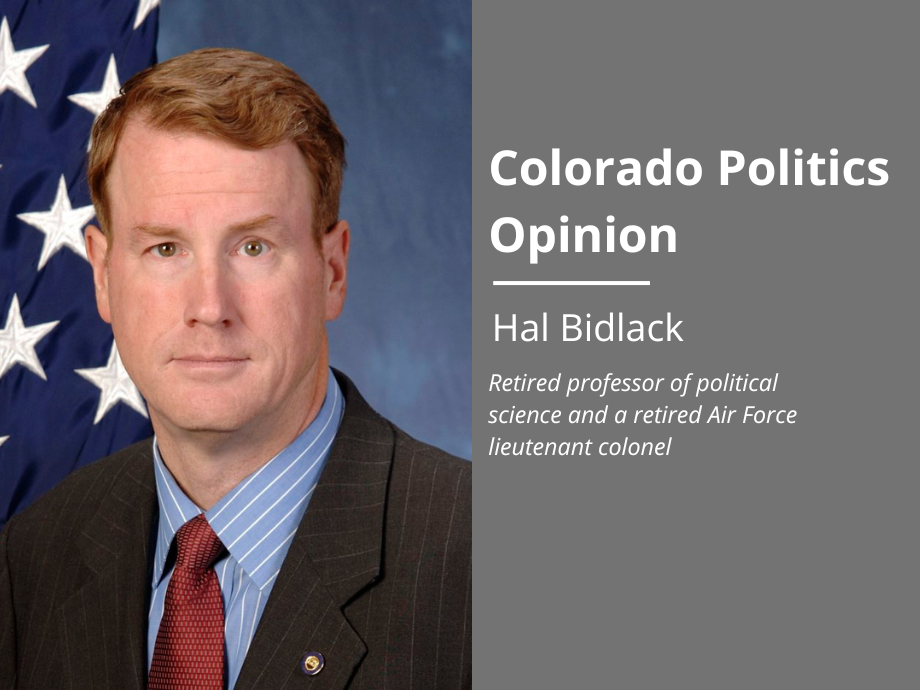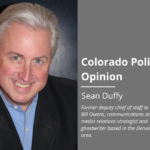Literacy of citizenry essential to a functioning democracy | BIDLACK


If you are of a certain age, you may recall ad campaigns for the organization Reading is Fundamental. Founded back in 1966, RIF ran lots of public service advertisements pointing out the importance of reading to our own success and to our nation’s. Thomas Jefferson, a man who once noted “I cannot live without books,” reflected on the importance of reading and education when he remarked, “If a nation expects to be ignorant and free, in a state of civilization, it expects what never was and never will be.”
Two things reminded me of the importance of reading this week, one a story on Colorado Politics and one intensely personal, and I hope you will forgive me for briefly indulging in a personal matter regarding the latter.
My older brother Stan Bidlack, who had just celebrated his 78th birthday the week before, died quite suddenly and unexpectedly last week. As he was 13 years my senior, I did not know him as well as I would have liked, as he was off to college and his life while I was still relatively young. But over the years we had grown closer, and he devoured my bi-weekly columns and would send me his thoughts.
Stay up to speed: Sign-up for daily opinion in your inbox Monday-Friday
I mention Stan, well, in part because he was a good man who deserves to be widely remembered, but mostly because of the Colorado Politics story I want to talk with you, dear readers, about. It seems the pandemic, in addition to all its other implications, was a gut punch to the reading skills of our nation’s youth.
Stan taught English in Ann Arbor, Michigan at the high school level for nearly 40 years. He was a brilliant teacher, often being called the best teacher a student ever had. He had a passion for education and in particular to reach out to every student, no matter how wise or foolish that student might appear to others. He even had cards made up for younger teachers with his own personal creed: “It is our educational duty to check ourselves every single day to make sure that we are being extremely cautious with our power. It is our obligation to try to insert our students into a vicious cycle of success. We are in the Dignity Business.” He also noted, “no matter what they say or how they act, there is no such thing as a kid who doesn’t want to succeed in school.” He was a teacher who cared about every student, without exception.
I mention Stan to honor him, of course, but also because the CoPo story notes the pandemic has had yet another dangerous and painful implication for our nation: a rapid and scary decline, especially in younger kids, in the basic ability to read. Few things will prove as damaging to young people, as they grow and one day enter our society as adults, than an inability to read and to understand. Jefferson aptly warned of the danger to democracy of an illiterate electorate.
The aforementioned RIF notes currently 34% of kids entering kindergarten lack basic reading skills. A stunning 67% of fourth graders read below grade level, and only 37% of students graduating from high school read at or above the basic high school proficiency level. Currently, 21% of American adults are functionally illiterate.
These are scary statistics, and they represent what I firmly believe is a clear and present danger to our nation’s economic and political success in the future.
So, what’s to be done about it? One of my treasured memories of my youth was being read to at night by my parents. I remember my dad reading “The Hobbit” aloud and my mom reading poetry. I continued that practice with my own kids, and we all loved it. Currently, just under half of American parents read to their kids aloud each day.
So, what shall we do about this trend and the damage done here by COVID? The first and easiest step is for more parents to read to their kids. It really doesn’t matter what they read, and public libraries are filled with great books, free for the borrowing, that tell of great adventures, heroes and heroines, and histories galore. If you are an adult, set an example and read. Roughly a quarter of Americans report that they haven’t read a book (in print, audio, or electronic form) in a year, and it would be good for the country if that trend reversed.
As the CoPo story powerfully notes, the impact of the pandemic on education has been massive, especially at the lower levels. It is going to take work to help at least mitigate the damage. Vital patterns of behavior are established early. All too many kids are scared of reading for fear of being embarrassed because they mispronounced a word or failed to understand a word’s meaning. And as remarkable as America’s teachers are, there are simply not enough of them to do the extra work needed to recover, and ultimately move past, the pandemic damage. Parents, grandparents, aunts and uncles, neighbors, and heck, any adult interacting with kids can help.
My sister Martha, who, like Stan, brilliantly taught in public schools for the better part of 40 years, worked with the little kids in elementary school. She once told me that by the time a kid leaves fourth grade, she could guess with a great deal of accuracy the future success or failure of a student. Her gut feeling has been backed up by a number of studies.
The pandemic’s full reach will take decades to fully understand. But clearly there are things we can do, as a nation or as a family, to help mitigate the worst of the educational impact. Reading to kids, encouraging them to read on their own, and being a good reading role model are all important first steps.
And you never know the remarkable worlds you will find when you share a book with your kids. The hobbits, wizards, generals, elves and detectives are all out there waiting, between the covers of wonderful books.
Hal Bidlack is a retired professor of political science and a retired Air Force lieutenant colonel who taught more than 17 years at the U.S. Air Force Academy in Colorado Springs.












